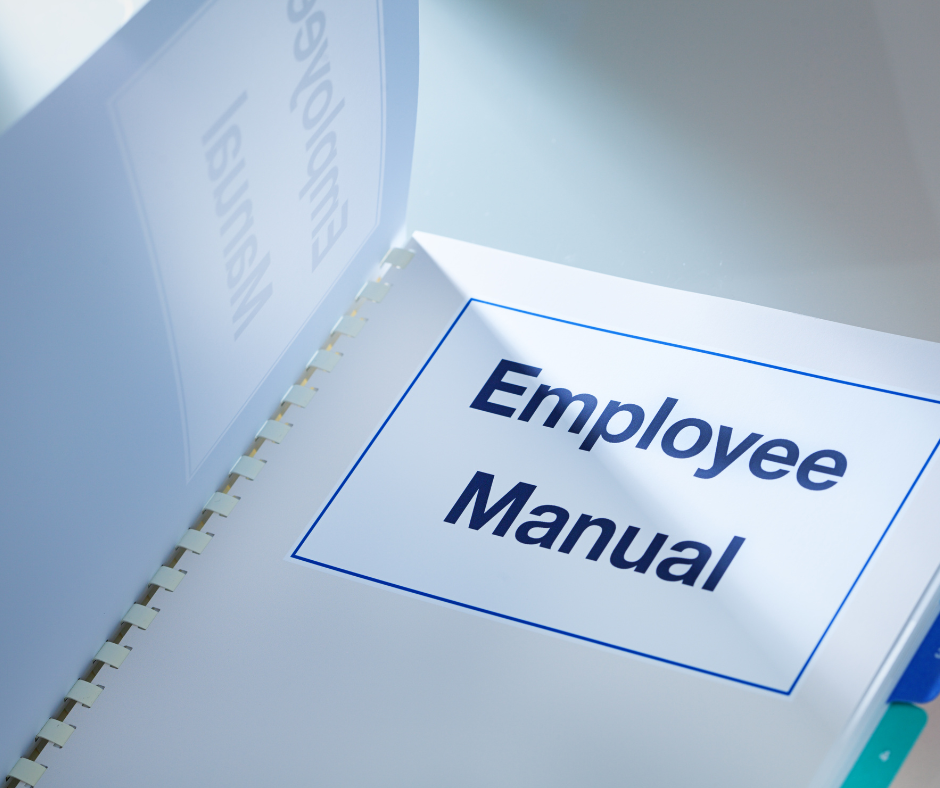
Key Takeaway:
- Employee handbooks provide a clear and comprehensive introduction to the company for transportation equipment manufacturing employees. It includes policies, procedures, legal and compliance information, employee benefits and compensation, and code of conduct. This essential document instills a sense of trust and responsibility that trumps onboarding sessions.
- The implementation of employee handbooks helps transportation equipment manufacturing companies to achieve better communication and understanding with their employees. They also help to ensure compliance and risk management measures, ultimately reducing the risk of legal issues and increasing overall productivity. This results in employee retention and boosting the company’s reputation.
- Best practices for creating employee handbooks for transportation equipment manufacturing companies include tailoring the handbook, using simple and clear language, and regularly updating it to reflect changes. Adherence to these practices will ensure effective communication, effective management of employee behavior, legal compliance, and overall company success.
Does your transportation equipment manufacturing company need an employee handbook? You’re in luck! This article dives into the details of why an employee handbook is an essential document for your business and how to build one.
Purpose of Employee Handbooks in Transportation Equipment Manufacturing Companies
Transportation Equipment Manufacturing companies utilize Employee Handbooks to ensure smooth and efficient operations. These handbooks provide essential information on company policies, procedures, and expected behaviour. Employee Handbooks for Transportation and Warehousing companies also help in establishing a positive workplace culture and reducing legal and compliance risks. These handbooks also ensure consistency in communication and implementation of company policies.
It is essential to provide employees with a comprehensive and understandable handbook that clearly articulates the company’s expectations, values, and policies. Employee Handbooks for Transportation Equipment Manufacturing companies usually cover topics like health and safety, code of conduct, work hours, leave policies, compensation and benefits, and performance standards. In addition, these handbooks can also address issues specific to the transportation industry, such as transportation safety regulations and driver code of conduct.
Importantly, Employee Handbooks for Transportation Equipment Manufacturing companies must be amended whenever there is a change in company policy or legislation. Failure to do so could result in legal disputes and violations, affecting the company’s reputation and financial stability. Therefore, Employee Handbooks for Transportation Equipment Manufacturing companies serve as a crucial instrument in maintaining a productive and harmonious workplace.
True history suggests that the roots of Employee Handbooks trace back to the early 1900s when labour laws and regulations started developing. Employers began to create handbooks to ensure their compliance with new regulations and communicate their expectations to employees. Over time, these handbooks evolved to cover a wide range of topics and became essential documents for employers and employees alike. Employee Handbooks continue to play a vital role in the modern-day workplace, especially in the Transportation Equipment Manufacturing industry.
Essential Information to Include in an Employee Handbook
When drafting an employee handbook for transportation equipment manufacturing companies, certain crucial details must be included. These details cover company policies, regulations, job expectations, and employee benefits. Here are some essential portions to consider:
- Introduction and Disclaimer
- Company History and Culture
- Employment Policies and Guidelines
- Code of Conduct and Ethics
- Employee Compensation and Benefits
- Employee Safety and Security Guidelines
In addition to the aforementioned details, employee handbooks for building material and garden equipment and supplies dealers companies must contain specific instructions pertaining to employee access to sensitive information, industry-related regulations, procedures for handling conflicts, and guidelines for the use of transportation equipment. Including these details in the employee handbook ensures that each employee is aware of their expectations within the company and prepared to abide by set standards. It is important to note that employee handbooks must comply with state and federal regulations. The National Labor Relations Board and the Equal Employment Opportunity Commission are two sources that can provide additional guidance for developing compliant employee handbooks for heavy and civil engineering construction companies. According to the Society for Human Resource Management, over 90 percent of employees receive an employee handbook when they are hired. Therefore, these handbooks are an excellent tool for providing new hires with an overview of company policies and establishing a positive work environment. If you are in the clothing and clothing accessories industry, you can check out this resource on employee handbooks for clothing and clothing accessories stores companies, which can help you create a comprehensive guide for your employees. (Source: Society for Human Resource Management)
Benefits of Implementing Employee Handbooks for Transportation Equipment Manufacturing Companies
Employee Handbooks for Transportation Equipment Manufacturing Companies: Maximizing Organizational Efficiency
Employee handbooks serve as an indispensable tool for streamlining operations and cost-effectively ensuring safe and productive work environments. For transportation equipment manufacturing companies, implementing comprehensive employee handbooks can offer significant benefits that promote organizational efficiency.
The following are the key benefits of employee handbooks for transportation equipment manufacturing companies:
- Regulating Workplace Behavior: Employee handbooks clearly outline the company’s policies and code of conduct, thereby ensuring that employees are aware of their expected behavior and their consequences. If you are looking for an employee handbook for a general merchandise store company, it is important to include this section to maintain professionalism and respect in the workplace.
- Mitigating Legal Risks: By outlining specific policies and procedures, employee handbooks help computer and electronic product manufacturing companies avoid legal disputes and prevent them from facing legal penalties in the event of a lawsuit.
- Facilitating Training and Onboarding: Detailed employee handbooks can simplify the onboarding process for new hires and provide a comprehensive training resource for existing employees in apparel manufacturing companies.
- Promoting Consistency in Decisions: By providing a reference point for company policies and procedures, employee handbooks for gasoline stations companies can help managers and HR professionals make consistent decisions in various situations.
- Encouraging Employee Confidence: Well-drafted employee handbooks can reassure employees about their rights and ensure their confidence in company policies and procedures.
Moreover, employee handbooks for transportation equipment manufacturing companies can also include specific safety protocols and hazard mitigation measures that are unique to the industry.
Implementation of employee handbooks for transportation equipment manufacturing companies has been a standard practice since the mid-20th century, primarily due to the need to regulate hazardous working environments and mitigate legal risks. Since then, employee handbooks have undergone significant evolution, incorporating digital technologies to facilitate accessibility and interactivity. However, the fundamental purpose of these handbooks remains the same – to establish consistency and transparency in company policies and procedures.
Best Practices for Creating Employee Handbooks in Transportation Equipment Manufacturing Companies
Employee handbooks are critical for transportation equipment manufacturing companies to establish clear policies and procedures for employees. Effective practices include outlining company values, expectations, and procedures for handling workplace issues such as safety and discrimination. Proper training for managers on enforcing policies and providing annual updates for employees can ensure policy adherence. The use of concise language and clear formatting can enhance communication and understanding. A well-crafted handbook can serve as a sound defense in legal disputes.
Five Facts About Employee Handbooks for Transportation Equipment Manufacturing Companies:
- Employee handbooks for transportation equipment manufacturing companies often include safety guidelines and procedures to ensure that employees are protected from accidents and injuries in the workplace. (Source: EHS Today)
- These handbooks may also contain policies related to acceptable behavior, discrimination, harassment, and other workplace issues. (Source: Small Business Chron)
- Employee handbooks can be used as evidence in legal disputes, making it important for furniture and related product manufacturing companies to ensure that their handbooks are up-to-date and compliant with relevant laws and regulations. (Source: National Law Review)
- In addition to providing information to employees, employee handbooks for beverage and tobacco product manufacturing companies can also serve as a tool for management to ensure consistency and accountability among staff. (Source: HR Technologist)
- Employee handbooks may need to be revised periodically as laws and company policies change, and as new technology and equipment are introduced into the workplace. (Source: SHRM)
Employee handbooks are crucial for all companies including specialty trade contractors companies in transportation equipment manufacturing.
FAQs about Employee Handbooks For Transportation Equipment Manufacturing Companies
What are Employee Handbooks for Transportation Equipment Manufacturing companies?
Employee handbooks for transportation equipment manufacturing companies provide important information and guidelines for employees working in the manufacturing sector of the transportation industry.
What should be included in Employee Handbooks for Transportation Equipment Manufacturing companies?
Employee Handbooks for Transportation Equipment Manufacturing companies should include a range of information, such as the company’s mission statement, organizational structure, and policies related to workplace safety, employee conduct, and benefits. Additionally, these handbooks should provide information on job responsibilities, performance expectations, and career development opportunities.
Why are Employee Handbooks important for Transportation Equipment Manufacturing companies?
Employee Handbooks are important for Transportation Equipment Manufacturing companies for a variety of reasons. Firstly, they ensure that all employees are aware of the company’s policies, procedures, and expectations, which promotes consistency and clarity across the organization. Secondly, they help to protect the company from legal liabilities by clearly outlining workplace safety guidelines and employee conduct expectations. Lastly, they can be used as a tool for employee training and development.
Is it necessary to update Employee Handbooks for Transportation Equipment Manufacturing companies?
Yes, it is necessary to update Employee Handbooks for Transportation Equipment Manufacturing companies on a regular basis. Company policies and procedures may change over time due to changes in the industry or company goals, and it is important for the handbook to reflect these updates. In addition, legal regulations may change, making it necessary to update the handbook to ensure compliance with new laws.
What is the role of HR in creating and maintaining Employee Handbooks for Transportation Equipment Manufacturing companies?
The role of HR in creating and maintaining Employee Handbooks for Transportation Equipment Manufacturing companies is to ensure that all relevant information is included and that the content is accurate and up-to-date. HR should work with legal advisors to ensure that the policies and procedures outlined in the handbook are legally compliant. Additionally, HR should be responsible for distributing the handbook to all employees and ensuring that employees understand its contents.
What are the consequences of not having an Employee Handbook for a Transportation Equipment Manufacturing company?
The consequences of not having an Employee Handbook for a Transportation Equipment Manufacturing company can lead to confusion among employees regarding company policies, procedures, and expectations, which can result in inconsistent practices and workplace disputes. Additionally, not having a handbook can leave the company exposed to legal liabilities, as there may be no clear guidelines for workplace safety or employee conduct. Having an Employee Handbook is an important tool for ensuring consistency and clarity across the organization.